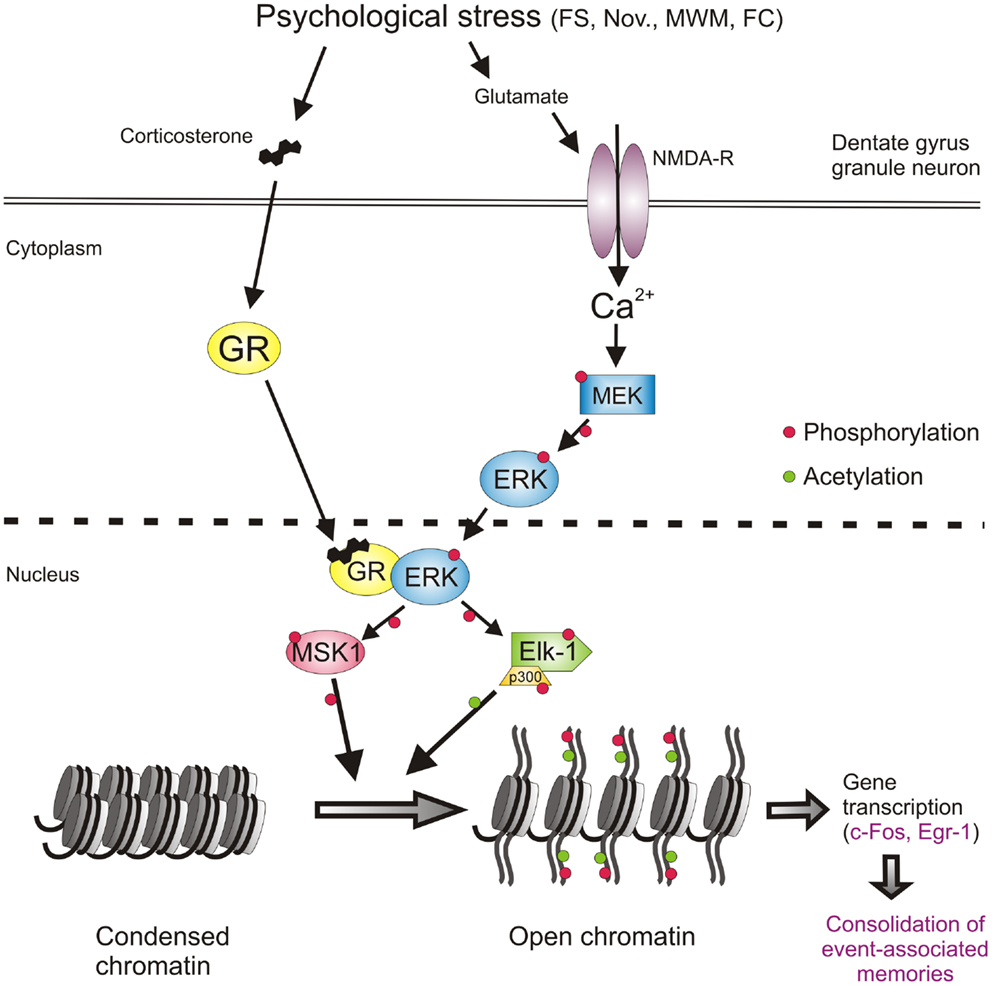It’s finals week. You have a to-do list over a mile long and are running on little to no sleep. You have consumed more coffee in the past two days than you have in your entire life. You’re stressed. This kind of stress, although unhealthy, will probably not have a lasting effect on the way you live your life, and soon, your finals week is over.
You decide to drive home to St. Paul, Minnesota for winter break. Suddenly, you hit a patch of black ice on I-94. Your car begins sliding, you lose control, and before you know it you’re hanging upside down in a ditch. Your heart is pounding, your mind is racing, and everything around you is black.

The car accident is now months past you, and you still have no desire to drive again. The memories of that night are forever embedded in your memory. You remember every detail of that night even though you can’t remember what you had for lunch yesterday. Why is that?
The answer may shock you: traumatic life experiences can actually lead to changes in your genes that alter your memory.
It all starts with the stress response…
When we encounter stress, our bodies release hormones called glucocorticoids. These glucocorticoids do a lot to our bodies under stress, but in the case of altering memory, they are the signals that signal a pathway that will eventually lead to altered gene expression.
So how does this work?
- You experience a traumatic stressor (car accident, death of a loved one, the list goes on and on…)
- Your body reacts to the trauma by releasing various molecules related to stress (such as glucocorticoid hormones and glutamate (a neurotransmitter involved in anxiety)).
- These glucocorticoids travel throughout your entire body, but most importantly, they travel to an area of the brain associated with the formation of long-term memories. This area is known as the dentate gyrus. It is part of the hippocampus and plays a huge role in the formation and storage of new memories.

https://en.wikipedia.org/wiki/Hippocampus - In order for the glucocorticoids to alter memory, they must influence a pathway that plays important roles in the formation of memory. This pathway is known as the NMDA/ERK1/2/MSK1/2-Elk-1 pathway.
- In addition to having a long name, this pathway is also responsible for activating the molecules responsible for altering one’s genes.
- It’s as simple as this:
- The activation of the pathway in combination with the glucocorticoids leads to the activation of two different molecules (MSK1 and Elk-1)
- These molecules are responsible for putting a “mark” on proteins known as histones, (these proteins are what organize the 6-feet of DNA that you have into your body into your tiny microscopic cells).
- This mark is what tells your gene editing machinery to set up shop on your genes and alter how they are read by your body.
- After setting up shop, all of the different tools (transcription factors, binding proteins, etc.) will get to work.
- Their finished product? Altered genes that are responsible for the reason your car accident is still so fresh in your mind.

Because they are so strongly encoded, these memories can actually be quite harmful as they tend to pop up in everyday life. This is the case for individuals living with PTSD and other stress-related mental disorders.
There are many individuals that have never experienced a traumatic event, and then there are those for whom trauma is all too familiar. Although not every traumatic experience will result in changing your way of life, those that do are worth mentioning.

Imagine going through your daily routine without being able to spend more than five minutes without your traumatic experience creeping its way into your thoughts. You begin to fear another traumatic event happening to you and decide to isolate yourselves from the outside world and the people you love. You avoid sleep because you fear that your traumatic event will show itself in your nightmares. You become depressed, anxious, and your sense of self-worth plummets. Your entire life has changed.
This is what life is like for someone with severe PTSD.
Here are a few facts that have been collected from the PTSD Alliance:
- Nearly 70 percent of adults will experience a traumatic event in their lifetime with over 20 percent of those adults developing PTSD.
- Women are twice as likely as men to develop PTSD.
- Individuals with anxiety or individuals who have experienced or witnessed a traumatic event in the past are more likely to develop PTSD.So what can we do about it?
- Recognize the Symptoms
- https://adaa.org/understanding-anxiety/posttraumatic-stress-disorder-ptsd/symptoms
- Help Individuals Get Help:
- Here are a few helpful tips to help those suffering from PTSD:
- https://www.nami.org/Learn-More/Mental-Health-Conditions/Posttraumatic-Stress-Disorder/Support
- Here are a few helpful tips to help those suffering from PTSD:
- Be Understanding: Show Support and Empathy
- Here is a list of 22 different ways to support someone with PTSD written by people who have it:
- https://themighty.com/2016/03/22-ways-to-support-someone-with-ptsd-from-people-who-have-it/
- Here is a list of 22 different ways to support someone with PTSD written by people who have it:
- Recognize the Symptoms
https://moodle.cord.edu/pluginfile.php/708065/mod_resource/content/0/anxiety%20making%20memories%20from%20stressful%20events.pdf